With the coronavirus pandemic destabilising the entire global travel industry, it’s a stressful time for both companies and consumers. However, the human race is incredibly resilient, and by embracing innovation and creativity, even the toughest challenges can be overcome – and even seen as opportunities. Jenny Southan reports on the trends shaping the future of luxury travel, with insights from a panel of expert insiders.
When Globetrender launched its Future of Luxury Travel Forecast: 2020-2025 at the Conduit Club in Mayfair last month – an event that was hosted by luxury PR and branding specialists Fox Communications and sponsored by luxury digital agency Verb Brands – it brought together four industry experts to discuss what the next five years have in store for travellers. Their predictions were illuminating, inspiring and thought-provoking.
On the panel was John O’Ceallaigh, former luxury travel editor of The Telegraph, consultant and founder of Lute; Tom Marchant, co-founder of Black Tomato; Thierry Teyssier, founder of 700,000 Heures; and Nigel Goode, designer and director of PriestmanGoode.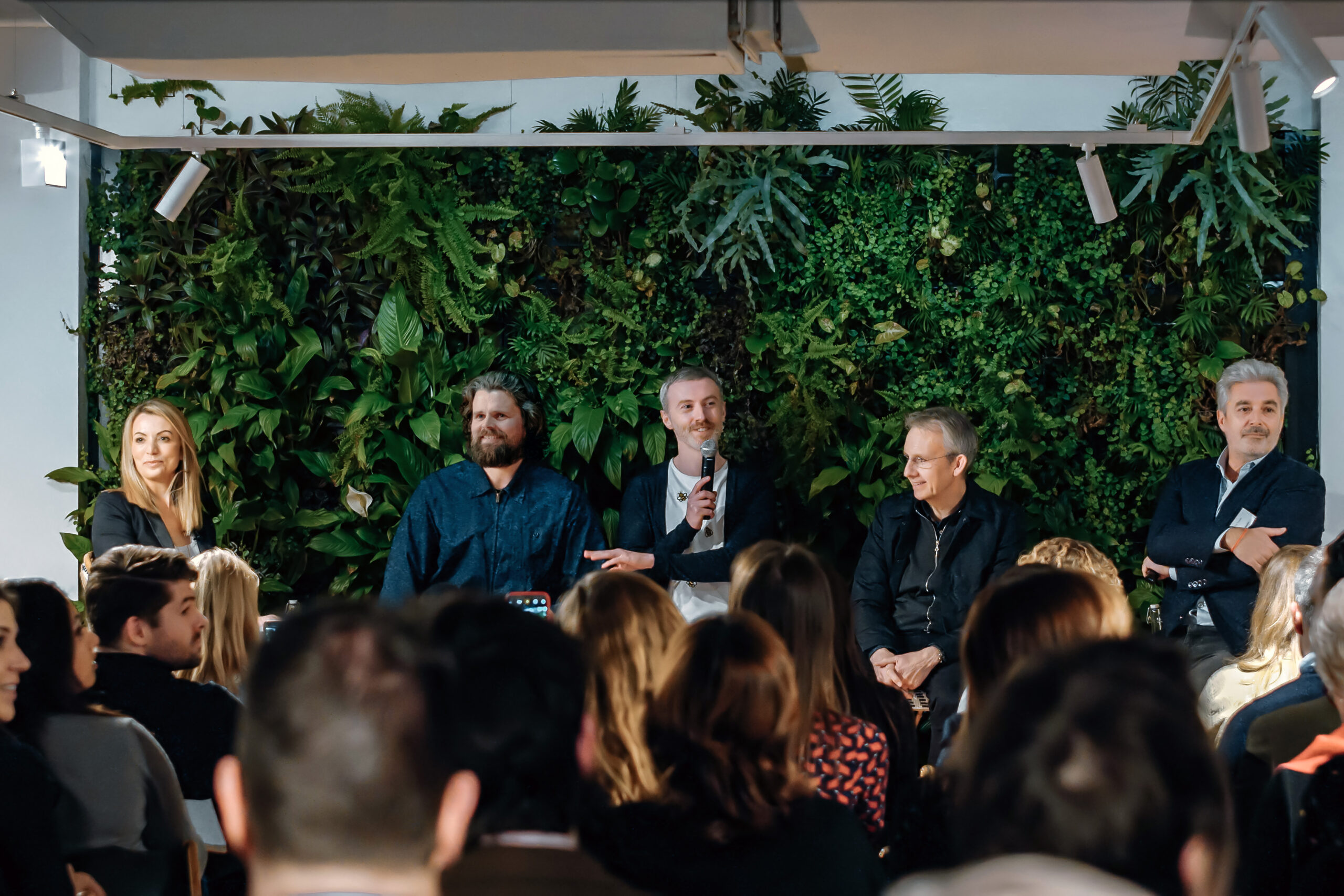 Chairperson Lysbeth Fox, founder of Fox Communications, opened up the discussion by asking: “When it comes to travel, what does luxury mean to you?”
Chairperson Lysbeth Fox, founder of Fox Communications, opened up the discussion by asking: “When it comes to travel, what does luxury mean to you?”
Marchant said: “Thoughtfulness. I think we get offered so much, so regularly these days that in can be quite easy to lose track. It used to be all about ‘uniqueness’ but if you are working with a company that demonstrates thought, that they are really thinking about you, and through that thought is giving you back something important like time – and creates ‘perfect time’ when you travel – for me, that is luxury.”
O’Ceallaigh said: “I think it would be really strange to say luxury only meant eating in Michelin-starred restaurants and staying posh hotels. It has moved on so far from that. When I was commissioning content [for The Telegraph], it wasn’t ordinarily governed by ‘expensive’. It would be ‘doing what you love in the best way possible’.
“I have eaten and drunk in many of the world’s 50 best bars and restaurants but actually my favourite place is in the west of Ireland where you can go to a pub and find a farmer crying into his Guinness who then stands up and sings a ballad about someone dying at sea. I feel very emotionally connected to that.”
He added: “I think that rigid straight jacket of having to do something expensive has altered entirely. We aren’t governed by that anymore. It’s much more fluid and personal.”
Goode said: “Often, the work that we do is at the front-end and back-end of that marvellous journey that everyone is going to go on [the plane]. For me it is so often those bits of the journey that are the most stressful. So we try to iron out those bumps in the road, those little tiny niggles. We have a customer team that spend all their time analysing every detail of what we hate about our flight. So stress-free travel is luxury.”
Teyssier said: “I think luxury is time. Instead of trying to increase the number of years in our life, we should just focus on amazing moments.”
Fox asked O’Ceallaigh what some of the most impressive luxury travel experiences he has ever had are. He said: “One of them was sailing around the Antarctic Peninsula aboard a retrofitted Russian ice-breaker with just 26 passengers on board. It was expedition-level so we got to go in a submarine and we saw hundreds of thousands of penguins. It was incredibly moving at every single moment. You didn’t want to miss a single second.
“Something else in terms of seeing innovation within the industry that was noteworthy was just over a year ago when I stayed in the Muraka, which is the world’s first fully underwater hotel suite. It’s at the Conrad Rangali Maldives and costs £50,000 a night. 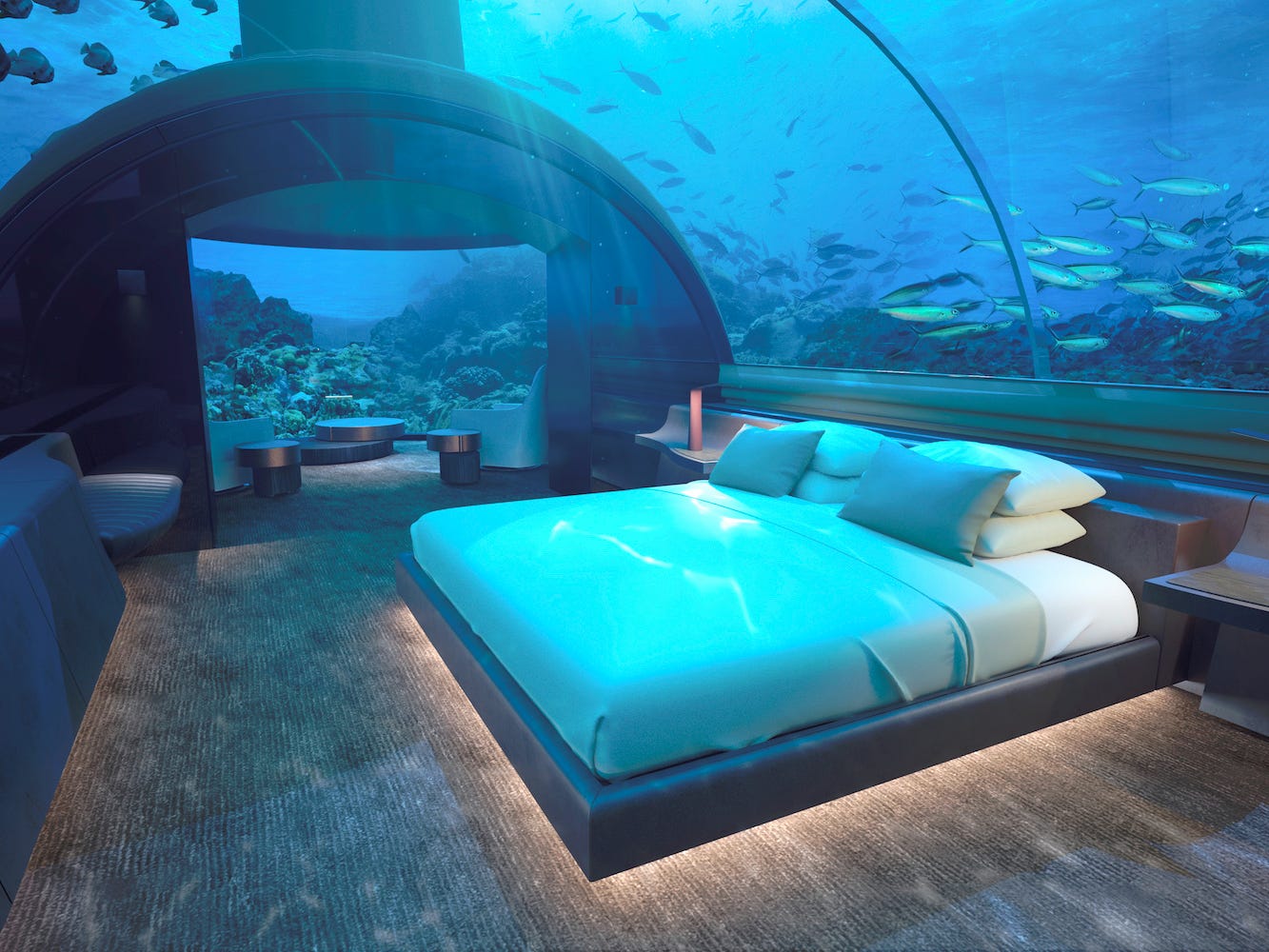 “For anyone who works in editorial or represents brands, they will know that the Maldives is the most boring destination in the world. I constantly get press releases saying a new resort has opened with over-water villas and a spa and a sushi restaurant. So this was a really great expression of creativity.
“For anyone who works in editorial or represents brands, they will know that the Maldives is the most boring destination in the world. I constantly get press releases saying a new resort has opened with over-water villas and a spa and a sushi restaurant. So this was a really great expression of creativity.
“When I stayed at Singita Grumeti in Tanzania, on a 350,000 acre reserve and something like 40 guests staying at any one time. So you are seeing people spending four or five grand a night but that money is sufficient to support the whole ecosystem and provide an industry around it.
“As part of that trip, I was introduced to the head of their anti-poaching initiative and he himself was a poacher in a prior life so they had the creativity to recognise that all of these people who were slaughtering these precious animals were actually best-placed to protect them.
“Bill Bensley’s Shinta Mani Foundation is another great example. It has a hospitality school and can arrange for guests to build wells for villagers for US$180. So when you have someone who is spending US$800 a night at its Shinta Mani hotel in Siem Reap, you suddenly find that all these wealthy travellers have built over 1,500 wells and that really is giving the gift of running water to an individual family.”
What can more conventional hotel brands learn from 700,000 Heures? Teyssier said: “What we have been doing for the last two years is move around the world, popping up for six months in new locations such as Cambodia, Brazil and Japan. That can be strange when you think about it because usually a hotel has walls and a roof but we don’t have anything like that.

“But what we are working on is to say ‘stop thinking about the size of hotels’. If you really want to become sustainable, if you want to have a deep and meaningful relationship with the local community – work with local communities, not professional people, [like we do]. This can be more difficult sometimes but always wonderful – the point is you can become more profitable and you can offer better service and a better experience if you have a small size. Our hotels are only three, four or five rooms. “I also have hotels in Morocco which are just 14 rooms and it is already a wonderful annual income. For 700,000 Heures, with just three rooms, we can generate 250,000 euros a year per room. If you want to think about the circular economy and really want to help people, don’t think big – just use normal houses with local people.
“I also have hotels in Morocco which are just 14 rooms and it is already a wonderful annual income. For 700,000 Heures, with just three rooms, we can generate 250,000 euros a year per room. If you want to think about the circular economy and really want to help people, don’t think big – just use normal houses with local people.
He added: “We have our own foundation to train them – and this year we are launching a collection of houses to have a permanent impact everywhere we go and a place for our members to stay.”
Fox asked Marchant: “It is one thing to have an idea but it is another to bring it into fruition. How do you take a concept and turn it into reality?”
Marchant said: “With a huge amount difficulty. The great thing about luxury travel is you are playing with the inspiration of this planet. And there is so much to fuel ideas – trends that have been identified, for example. We start with a blank slate and ask if it has been done before, and why not and could we do it? It’s one thing to sketch it out on paper but another to turn it into reality.
“It’s a lot of graft, a lot of honesty, a lot of great contacts and partners, and an unrelenting desire to bring it to life. A couple of things that we have done recently – we saw Globetrender’s ‘Pay for Peril’ trend and this is connected to it. A few years ago we launched an experience called ‘Get Lost’ – we thought it would be funny to get people lost but set them a challenge to explore their way out of and give themselves both a physical and mental challenge.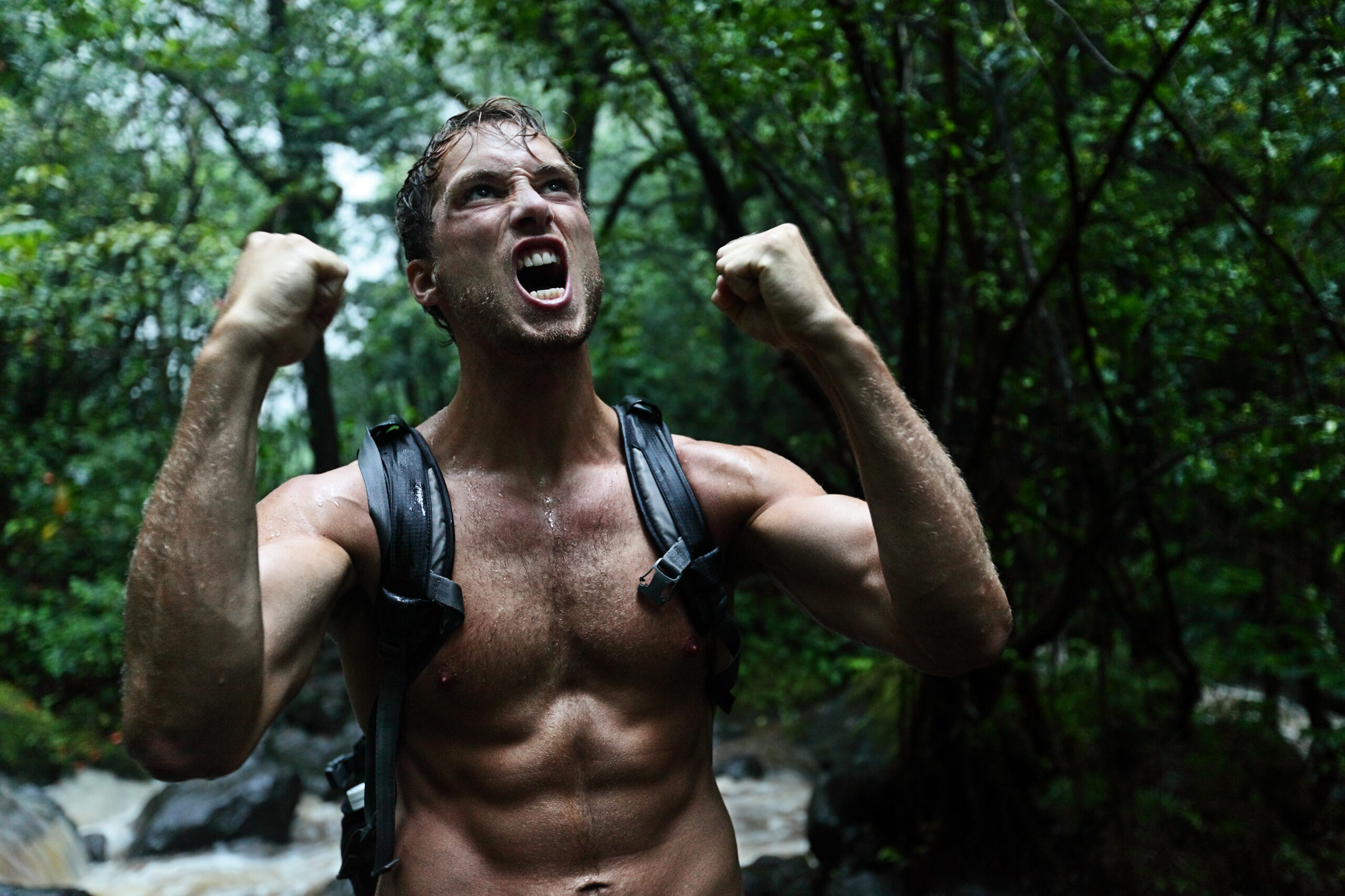 “Our belief is that in addition to physically challenging yourself, if you are mentally challenging yourself, you are more distracted and you are not thinking about your day job back home. Luxury is distraction. Participants in Get Lost are literally blind-folded and dropped off for a week or ten days in an extreme environment, although always in sight of our expert guides.
“Our belief is that in addition to physically challenging yourself, if you are mentally challenging yourself, you are more distracted and you are not thinking about your day job back home. Luxury is distraction. Participants in Get Lost are literally blind-folded and dropped off for a week or ten days in an extreme environment, although always in sight of our expert guides.
“Many people love luxury hotels and that chance to relax but there is a portion of the market that when they take time off, want to really challenge themselves. They aspire to something. And have that badge of honour. To make it work, we researched and tested again and again.
“Another product we have launched is called ‘Bring it Back’. It’s like our version of a wellness offering. Our big belief is that travel is this wonderful vehicle that connects you to wonderful cultures and communities, but quite often you go there and then come back and forget about it.
“I have often found that travel is this amazing vehicle to answer questions that I have on a day-to-day basis that I can’t find the answers to because I am too busy, I don’t have the knowledge or I don’t have the access.
“So if you can go and spend time in communities that have a really interesting take on some of those fundamental human building blocks like family, love or health, time in these environments can be be really inspiring and you can bring those learnings back home and start paying them into your daily life. You are not only being transformed in your outlook but that continues when you get back home. Now we work with entrepreneurs in Iceland and tribes in Mongolia, for example.”
Fox asked Goode what are some of the most innovative changes we can look forward to in first and business class over the coming years? He said: “As we know, the airline market is very conservative so we are pushing the airlines and manufacturers as much as we can. And I think there are lots of interesting things happening. The designers out there are creating great ideas but it is a case of getting them off the ground.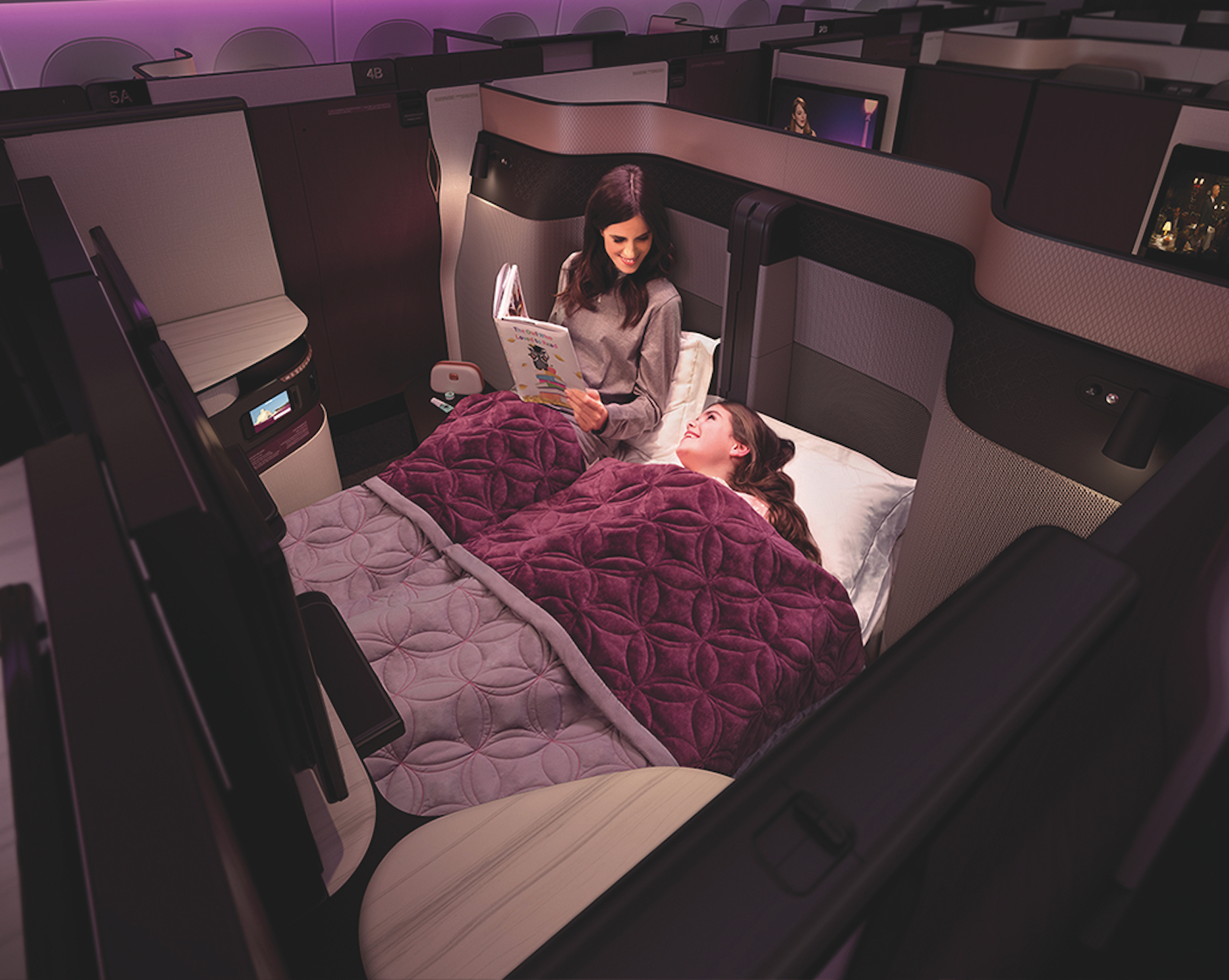 “We have done lots of concepts for companies such as Airbus, Embraer and Boeing looking at different ways of really enhancing the product. We worked quite a lot with Qatar Airways doing their Qsuite, which is quite a revolutionary product for business class [it has the option of communal dining and double beds and – pictured above] because it has really taken a business class product and taken it into a first class arena. This is something that is gathering more and more pace.
“We have done lots of concepts for companies such as Airbus, Embraer and Boeing looking at different ways of really enhancing the product. We worked quite a lot with Qatar Airways doing their Qsuite, which is quite a revolutionary product for business class [it has the option of communal dining and double beds and – pictured above] because it has really taken a business class product and taken it into a first class arena. This is something that is gathering more and more pace.
“A lot of the companies that make aircraft interiors are engineering companies not furniture companies so it really about trying to get the quality, the detail and the finish. We see that a lot more in terms of business class – all of them are beginning to offer more privacy with screens, and the airlines will be giving more space. We are looking at making cabins more adaptable so suites can be a lounge, a dining area or a bedroom not just a seat. We are also looking at cinema and sleep areas in cargo holds.
“I also think there is an opportunity to create new aesthetics for luxury using new designs and materials. It’s an exciting time. Not only that but you have supersonic coming back – once everybody has those plush interiors, then obviously speed will become an issue again.”
“What do you think the luxury traveller of tomorrow is looking for?” asked Fox.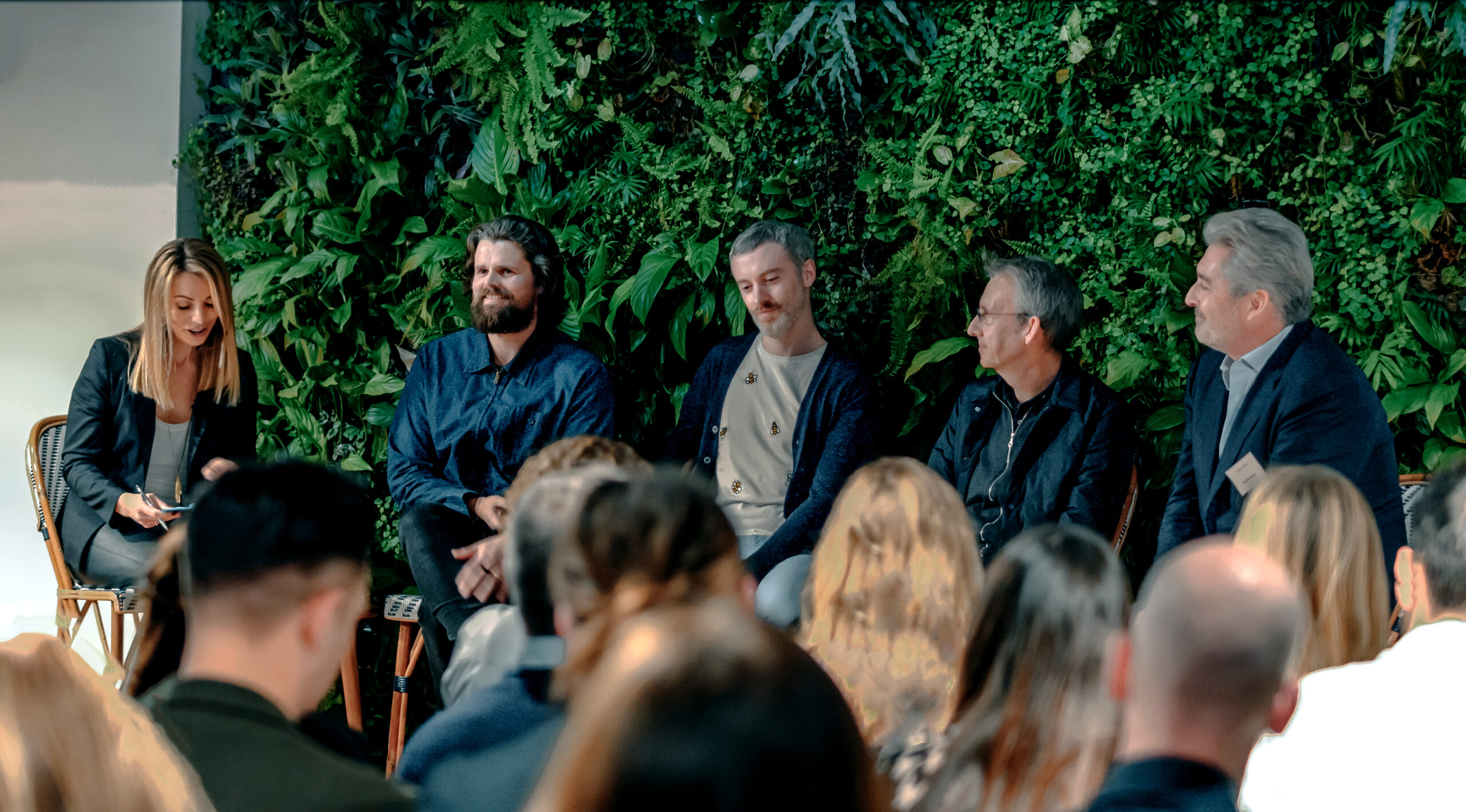 Marchant said: “Distraction. To be distracted is to be relaxed. For the luxury traveller, day-to-day life is often manic, they are on 24/7 and are dealing with a lot – job, family, home. So when you go away you want to relax but the ways people traditionally viewed relaxation was lie on a beach and do nothing. But these days you probably have signal and you will probably be looking at your handheld. If you create distractions and go to places that fuel your interest then you aren’t thinking about work.”
Marchant said: “Distraction. To be distracted is to be relaxed. For the luxury traveller, day-to-day life is often manic, they are on 24/7 and are dealing with a lot – job, family, home. So when you go away you want to relax but the ways people traditionally viewed relaxation was lie on a beach and do nothing. But these days you probably have signal and you will probably be looking at your handheld. If you create distractions and go to places that fuel your interest then you aren’t thinking about work.”
O’Ceallaigh said: “I think the luxury traveller of the future is going to interrogate their trips a lot more closely and be much more demanding. I think people will travel less in the future – they will think a lot more about why they are travelling. The idea of taking ten trips a year if you’re a wealthy consumer might be replaced with one long break for example. I think being really creative and innovative will help you stand out more than ever.
“I was one of the first people lucky enough to stay at 700,000 Heures – and we talk about Ephemeral Hotels as one of the trends in our report – the idea that this is exclusive in the extreme in that these will be never-to-be-repeated places but also the emotional resonance of that, knowing that I would never again have the opportunity to experience to do this again. I think when you engage with a luxury travel experience like this you value it so much more.
“Simple expressions of creativity can have a great impact on your consumers. For example, one thing that I remember from my stay at 700,000 Heures, was rather than having some garish wall of fake flowers for influencers [to stand in front of and take photos] they had a woman surreptitiously sketching illustrations of guests throughout their stay, so when I checked out she presented me with a folder of drawings of me doing various bits and pieces. Isn’t that so much more valuable. I saw people in tears when they were leaving. And that is a very cheap thing to implement.”
What is Goode most excited about? “Space travel. I think most people now view it as science fiction but we have been involved in a number of projects [such as World View, pictured] and once they are out there in the next five years, people will be really aghast. Everyone is striving for new experiences but looking from afar at our planet, seeing that thin blue line of atmosphere, with no borders, everybody will want to join that small elite club.”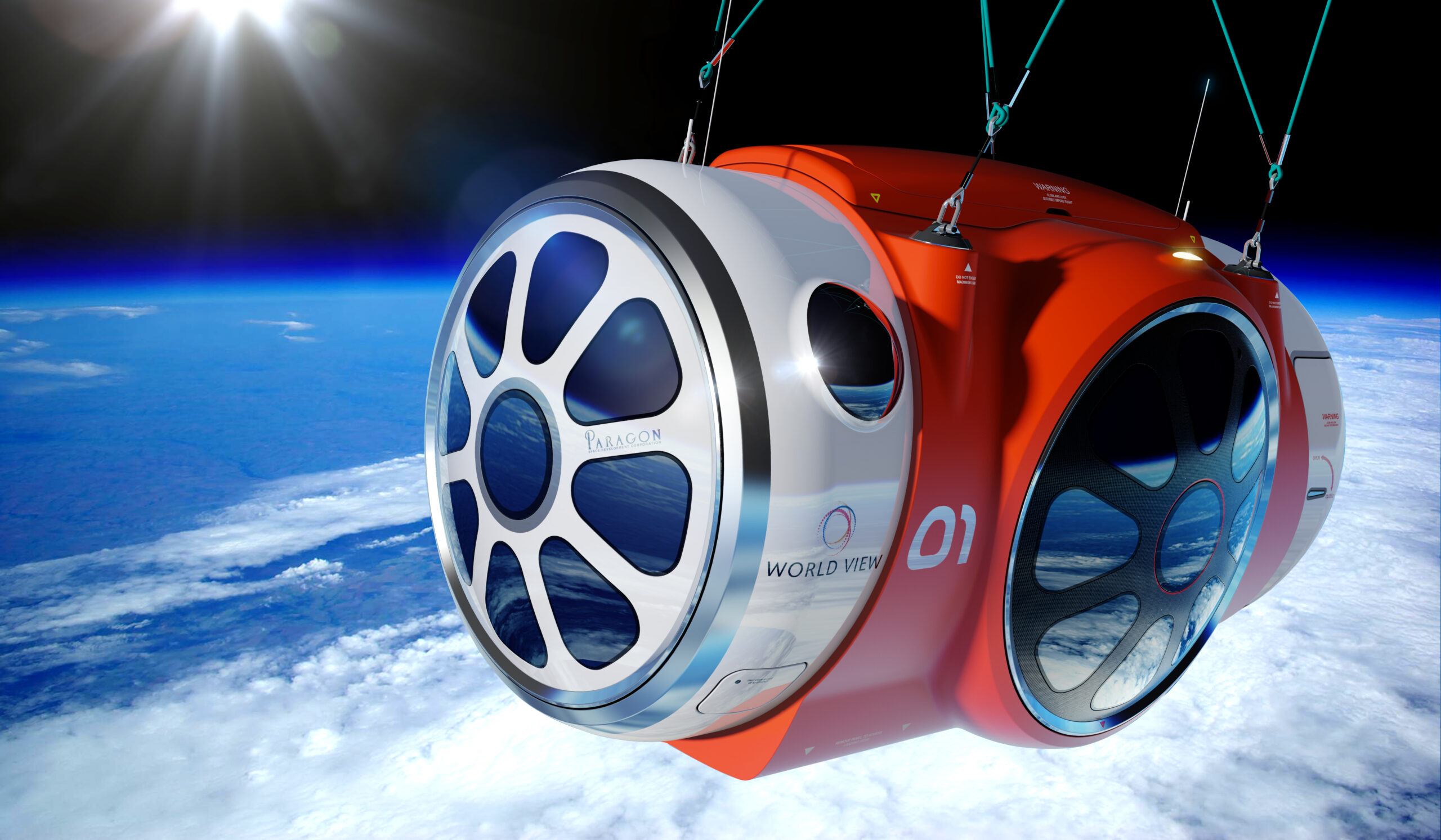 Teyssier said: “Hospitality is not a job – it is something from your heart. If I think about my guests, they don’t want to have to stop and think and decide every minute. Sometimes it is good not to know about what you are going to do. We need to help them to let go and feel alive and live something wonderful.”
Teyssier said: “Hospitality is not a job – it is something from your heart. If I think about my guests, they don’t want to have to stop and think and decide every minute. Sometimes it is good not to know about what you are going to do. We need to help them to let go and feel alive and live something wonderful.”
Fox asked: “if today’s luxury travel buzzwords are ‘authenticity’ and ‘experience’, what will be on everyone’s lips in five years’ time?”
O’Ceallaigh said: “Rarity. With diminishing resources people are going to be more mindful about what they consume. One of the trends we talk about in the report is Beta Destinations, which is about the idea of going to destinations that aren’t ravaged by tourism and discovering something that is unique and personal.”
Marchant said: “Purity. I am obsessed with the organisation Quiet Parks International. The first national park to be a designated quiet zone is on the Zabalo River in Ecuador [Colorado’s Great Sand Dunes National Park could be the first in the US].
“This idea of finding places that protect ‘quiet’ – we live with so much white noise – and having this elemental, pure offering – whether that is silence, air, water or the clarity of the night sky. Believe it or not there are places in the world where you can read by starlight.
“Increasingly, as this crazy world we live in consumes and overwhelms us, the idea of being able to take a trip that juxtaposes so strongly with our day-to-day existence will become even more important to people.”
Teyssier said: “Locals. We have to be confident in working with local people.”
Goode said: “Optimism. There are so many horrible things that could happen to us but I have a great feeling that maybe we can pull it out of the bag and turn the corner.”
What’s coming next? Trend reports available to download HERE



